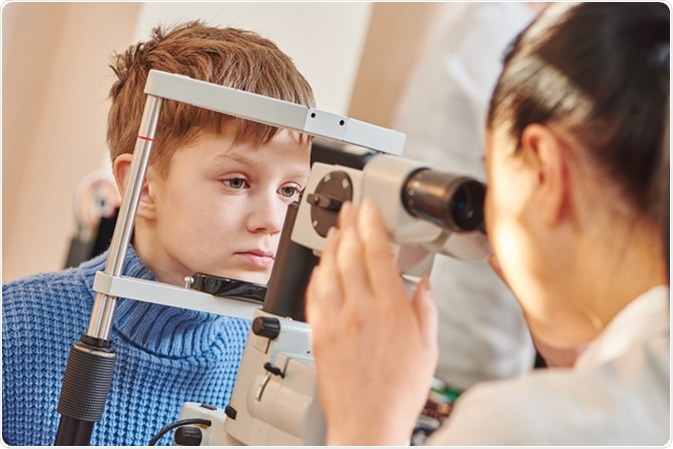Expert Neurologist Andalusia: Comprehensive Brain Health Providers
Expert Neurologist Andalusia: Comprehensive Brain Health Providers
Blog Article
Is Refractive Surgery Right for You? Variables to Think About for Better Eyecare
In the realm of eye care, the decision to undertake refractive surgical treatment is a significant one that demands thoughtful consideration. From the complexities of one's eye health to the details of day-to-day routines and individual assumptions, each facet holds significance in the broader landscape of refractive surgical treatment candidacy.
Eye Wellness Assessment
When considering refractive surgery, an extensive eye health and wellness evaluation is vital to assess the viability of the procedure for each and every person. neurologist andalusia. This assessment entails a collection of exams and tests carried out by an eye care professional to establish the total wellness of the eyes, the presence of any hidden problems, and the security of the refractive error
During the examination, numerous variables are thought about, such as the patient's case history, existing eye prescription, corneal density, pupil dimension, and tear film top quality. These evaluations assist to recognize any kind of contraindications to refractive surgical treatment, such as corneal problems, cataracts, or untreated eye infections. Additionally, the examination helps to take care of client assumptions concerning the potential results of the surgical treatment based on their unique eye features.
Ultimately, the eye health and wellness examination is vital in making certain the security and effectiveness of refractive surgery, as it provides important understandings into the individual's eye wellness standing and helps identify one of the most ideal treatment choices for accomplishing optimum aesthetic results. (cardiologist andalusia)
Way Of Life Assessment
A comprehensive lifestyle assessment is integral in establishing the suitability of refractive surgery for an individual's aesthetic improvement requirements. Way of life variables such as occupation, hobbies, and everyday activities play a crucial function in the decision-making process regarding refractive surgical treatment.
Moreover, way of life practices such as sporting activities participation, exterior tasks, and even skin care routines can influence the recovery process and general success of refractive surgical treatment. People who engage in contact sports might require to take additional precautions to secure their eyes during the recovery period. Furthermore, individuals with comprehensive sun direct exposure might call for added post-operative like protect against complications. By conducting an extensive way of living assessment, eye care experts can customize their recommendations and treatment plans to meet the distinct needs of each person, ultimately bring about boosted visual results and complete satisfaction.
Expectation Positioning

Patients require to understand that while many people accomplish 20/20 vision or better complying with refractive surgical procedure, some may still call for glasses for specific tasks like analysis or driving at evening. Taking care of these assumptions aids avoid frustration and dissatisfaction post-surgery, leading to an extra favorable general experience for the individual.
Danger Evaluation

Elements that may enhance the danger of problems include age, certain clinical problems like autoimmune illness, unstable vision prescription, thin corneas, and impractical patient assumptions. Additionally, picking a proficient and knowledgeable specialist, complying with pre and post-operative care directions vigilantly, and divulging any appropriate case history can aid alleviate risks.
To minimize the chance of problems, ophthalmologists carry out complete pre-operative assessments to identify any contraindications to surgical treatment. They also review the prospective risks and benefits with people throughout the consultation process. By engaging in open interaction and shared decision-making, both the patient and the ophthalmologist can function together to identify if refractive surgical treatment is the best option based on specific danger profiles and preferred results.
Examination Significance
Thinking about the essential role of notified decision-making in assessing risks and prospective complications in refractive surgical procedure, the appointment procedure holds substantial significance in directing individuals towards optimum results. Throughout the examination, the eye doctor assesses the client's eye wellness, refractive errors, and total suitability for surgical procedure. This initial evaluation is essential in identifying the most ideal treatment for each individual, taking into consideration aspects such as corneal density, student size, and existing eye problems.
Moreover, the assessment works as a chance for individuals to review their expectations, issues, and any type of inquiries they might have concerning the surgery. Clear interaction between the cosmetic surgeon and the client is vital to ensure sensible assumptions and a comprehensive understanding of the possible dangers and advantages included.
In addition, the assessment permits the cosmetic surgeon to discuss the various surgical alternatives available, their corresponding end results, and the post-operative care required. This detailed discussion encourages individuals to make knowledgeable decisions concerning their eye care, causing far better contentment and end results post-surgery.
Conclusion
Finally, individuals thinking about refractive surgical procedure must undertake a thorough eye health and wellness examination, evaluate their check my site lifestyle practices, straighten their assumptions with possible outcomes, assess the associated dangers, and focus on assessments with eye care experts. These variables play a vital duty in figuring out the suitability of refractive surgery for each individual, making certain ideal end results and complete satisfaction with the treatment.
People taking into consideration refractive surgery often have high assumptions pertaining to the outcomes, expecting excellent vision without the requirement for glasses or call lenses. While refractive surgical procedure can substantially boost vision and decrease dependence on aesthetic aids, it is crucial for people to understand that outcomes see it here might differ based on individual aspects such as the level of refractive mistake, corneal thickness, and total eye health.
By engaging in open communication and shared decision-making, both the individual and the ophthalmologist can function together to determine if refractive surgical treatment is the appropriate choice based on specific danger profiles and wanted outcomes.
Thinking about the essential role of educated decision-making in examining threats and possible problems in refractive surgical treatment, the examination procedure holds substantial value in guiding patients towards optimum outcomes. Throughout the view website consultation, the ophthalmologist assesses the individual's eye health, refractive mistakes, and total suitability for surgery.
Report this page